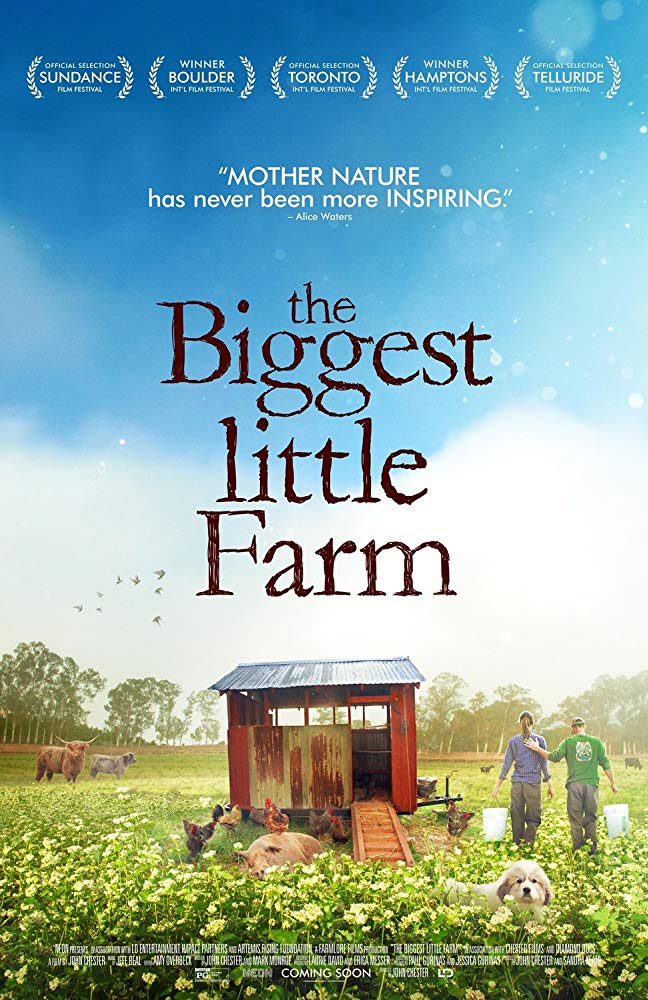The Biggest Little Farm
A good documentary will make you care about a subject you normally wouldn't care about. I've said that before, and the sentiment applies again to The Biggest Little Farm. Even if you could not remotely care about farming, there is an excellent chance that you will get absorbed in this film, which mixes educational and personal qualities in a manner that's hard to resist.
Emmy-winning director John Chester kept cameras rolling as he and wife Molly made a life-changing decision. They purchased 200 acres of land in Ventura County, California and worked to create a sustainable farm. Whereas many farms these days focus on producing just one or two crops, they wanted to have biodiversity. Under the tutelage of mentor Alan York, they began by bringing the dead, hardened soil back to life, then continued from there.
Multiple challenges are shown throughout the movie, which drives home just how difficult the Chesters' dream was to fulfill. Coyotes eat their chickens, a drought kills crops, and their prized pig delivers more than a dozen babies, which they don't necessarily have the resources for. On several occasions, the farm seems as though it's on the verge of facing calamity. The drama inherent in that pulls you in.
If there's a recurring theme to The Biggest Little Farm, it's how important balance is in an ecosystem. Solutions to problems are often right in front of John and Molly. When snails begin eating the leaves of their citrus trees, causing the fruit to be compromised, they bring their ducks into the orchard to eat those snails. Part of the fascination of the movie comes from seeing how one element of the farm can be used to solve a problem with another element. You're not likely to find a better primer on how nature works to even itself out.
Residing alongside the farming material – which, incidentally, is beautifully and vibrantly photographed – is a deeply personal story about a couple taking on a massive project. John and Molly are sad when their animals die, experience joy upon producing bountiful crops, and occasionally make difficult decisions in order to keep their dream alive. John provides continual narration, helping us to understand the emotions he and his wife felt at all times.
The Biggest Little Farm makes it crystal clear how extraordinarily complicated it is to run a sustainable farm, and also how perfect nature is when you take the time to really examine its capabilities. What could have been dry and esoteric is instead unexpectedly inspiring.
out of four
The Biggest Little Farm is rated PG for mild thematic elements and brief language. The running time is 1 hour and 31 minutes.
